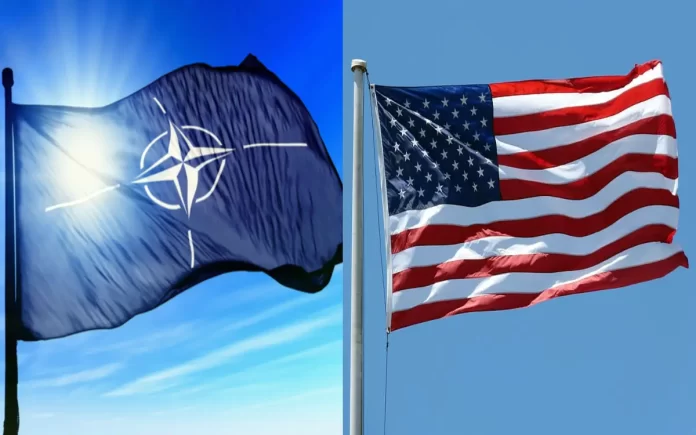Brussels: The head of NATO issued a cautionary message on Thursday, urging member countries to avoid driving a wedge between the United States and Europe, amid concerns about Washington’s commitment to its allies should Donald Trump return to office.
With the ongoing conflict in Ukraine draining military and financial resources, and a U.S. support package delayed by congressional infighting, European leaders and officials emphasize the need for increased investment in defense and technological advancements, along with ramping up weapons production.
“I welcome the European allies’ increased investment in defense, which NATO has advocated for many years,” stated NATO Secretary-General Jens Stoltenberg during a meeting at the alliance’s Brussels headquarters. “But this should not be an alternative to NATO. Strengthening NATO is crucial, and we must avoid any actions that suggest attempts to divide Europe from North America.”
Recent discussions have even broached the idea of Europe developing a nuclear umbrella. Currently, France and the United Kingdom are Europe’s sole nuclear powers, with France traditionally positioning itself as a counterbalance to U.S. influence in NATO and abstaining from participation in NATO’s nuclear planning group.
“NATO’s nuclear deterrent has been effective for decades,” emphasized Stoltenberg. “We must not undermine it, as doing so will only foster uncertainty and potential misunderstandings.”
While talk of a European nuclear umbrella has surfaced, German Chancellor Olaf Scholz and other top security officials maintain that NATO’s nuclear umbrella remains indispensable.
German Defense Minister Boris Pistorius dismissed discussions about European nuclear weapons as premature, cautioning against engaging in such complex debates spurred by election campaign rhetoric.
Former President Trump’s recent remarks regarding NATO have drawn criticism, with President Joe Biden labeling them “dangerous” and “un-American,” raising concerns among U.S. partners about its reliability on the global stage.
Stoltenberg highlighted the potential impact of such comments on NATO’s collective security commitment, particularly Article 5 of the organization’s founding treaty, which guarantees a collective response to any attack on a member country.
German Vice Chancellor Robert Habeck echoed similar sentiments, emphasizing that abstract debates won’t lead to success, expressing skepticism about integrating French nuclear weapons into a European atomic arms strategy.
NATO’s nuclear deterrence relies on U.S. warheads deployed in Europe and coordinated efforts among member countries, underscoring the importance of unity and cohesion within the alliance.



